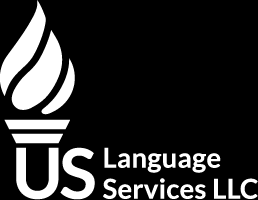How to Work in the U.S. As a Foreign-Educated Lawyer

Legal careers are often highly sought-after, and they tend to be highly competitive. If you practice in a foreign country as a lawyer, you may be wondering if it is possible to bring your practice to the United States. Practicing in the U.S. as a lawyer has many benefits, one of the most prominent being the pay. According to the U.S. Bureau of Labor Statistics, the average lawyer makes $127,990, with pay ranging from $61,400 to $208,000.
To earn these benefits and take advantage of everything being a lawyer in the U.S. brings, you will need to complete specific steps. Our guide answers important questions about this process such as:
- What Is the Process for Working in the U.S. As a Foreign-Educated Lawyer?
- How Much Does It Cost to Work as a Foreign-Educated Lawyer in the U.S.?
- How Long Does It Take To Work as a Foreign-Educated Lawyer in the U.S.?
- Are There Any Restrictions to Working as a Foreign-Educated Lawyer in the U.S.?
- What Are the State-Specific Requirements for Foreign-Educated Lawyers?
- What Are the Immigration Requirements for Foreign-Educated Lawyers?
- Where Can I Get a Certified Translation?
What Is the Process for Working in the U.S. As a Foreign-Educated Lawyer?
When it comes to working as a foreign-educated lawyer in the U.S., there are a few steps that you will need to complete. Licensing and examinations for lawyers are regulated on a state level, and it’s important to keep in mind the state you wish to work in when completing any remaining U.S. legal education and examination requirements.
Review the following steps for becoming a foreign-educated lawyer in the U.S.:
- Your first step in this process is ensuring that you meet the proper education requirements for U.S. lawyers. Because legal knowledge is a very country-specific field, you will most likely need to obtain additional education in the U.S. no matter your foreign credentials. Check the state bar association for the state you wish to work in to learn which education requirements you will need as a foreign applicant. Most states will at least require an LLM degree, which is a one-year program, but some states will require you to obtain a three-year Juris Doctor (J.D.) degree.
- Select a legal education program in the U.S. based on your state’s requirements. If you need to obtain a three-year education program, you will most likely need to complete the LSATs as part of the admissions process. The Law School Admissions Council (LSAC) provides more information about this, and about LLM applications, on its website.
As part of the process of obtaining a U.S.-based legal education, you will need to obtain a credential evaluation from a reliable organization, preferably one that is a member of either the National Association of Credential Evaluation Services (NACES) or the Association of International Credential Evaluators (AICE). You will need a certified translation of your original documents for this step.
Additionally, you should strongly consider taking either the Test of English as a Foreign Language (TOEFL) or the International English Language Testing System (IELTS) before applying to a U.S. education program, especially if your home country’s language is not English; one of these tests is commonly required of international applicants looking to pursue a legal education in the U.S. Check with your chosen program for more information. - After you have met all education requirements, you will then be eligible to sit for your chosen state’s bar exam. Bar examination eligibility, accepted passing scores, and other requirements vary based on the state you choose, so it’s important to consult your state’s bar association for more detailed information. You can also use this interactive map of state bar exam requirements to accurately prepare yourself.
- Once you have taken your state’s bar exam, you will need to complete additional state-specific requirements. This typically involves taking state-specific examinations related to your legal career in that state, submitting applications for licensing, and paying a license fee. After you have your license, you will be eligible to practice as a lawyer in your chosen state, but you will need to be sure that you keep up with any ongoing education and license renewal requirements.
- Make sure that you have the proper immigration documents such as a visa or green card to work in the U.S. as a foreign-educated lawyer uninhibited. There are a few different types of visas you may be eligible for, including student visas when you are obtaining your U.S. legal education, so make sure to pick the one that best fits your needs. Consult an immigration lawyer for more detailed information.
How Much Does It Cost to Work as a Foreign-Educated Lawyer in the U.S.?
The cost of working as a foreign-educate lawyer in the U.S. varies based on the specific state you are choosing to work in, your individual immigration situation, and any U.S. education requirements that you might need to meet. A basic LLM degree may cost between $50,000 and $70,000 on average, and obtaining a three-year J.D. is an average cost of $50,000 to $60,000 per semester; most states require international lawyers to at least obtain an LLM before they are eligible to take the bar exam.
The bar exam costs around $500 to take, not including preparation materials, but this might be less or more depending on the state you are taking the exam in. If you need to take the TOEFL or IELTS, which is generally recommended, you may need to pay an additional several hundred dollars.
State licensing fees for lawyers typically average around a few hundred dollars initially, and you may be required to pay this every few years to keep your licensing active.
Additionally, the cost of immigration to the U.S. can be a few thousand dollars when you include application fees, background checks, and immigration assistance; this exact cost depends on the type of visa or green card you are applying for.
How Long Does It Take To Work as a Foreign-Educated Lawyer in the U.S.?
The process of becoming a lawyer in the U.S. with foreign credentials can be lengthy due to the specific education and examination requirements you will need to meet before being allowed to legally practice in your chosen state. Depending on what your chosen state allows education-wise, you may need to take a few years to complete a U.S. law degree such as a full three-year J.D., an accelerated J.D., or an LLM degree.
After you have obtained the proper education requirements to be eligible for the bar exam, you will need to prepare for and pass this exam, a process that may take between 6 months and a year. You may then need to meet other state examination requirements and become established to practice in the state, adding several more months to this process.
Finally, you will need to ensure you have the correct immigration materials to travel to the U.S. and work as a lawyer. This process is likely to take between 13 and 24 months, but this could be longer or shorter depending on your specific situation.
Overall, expect this entire process to last between 2 and 5 years on average.
Are There Any Restrictions to Working as a Foreign-Educated Lawyer in the U.S.?
Once you have obtained the legal education you need to be eligible to pass the bar, passed your state’s bar exam, and met all state-specific requirements for licensing and practicing as a lawyer in that jurisdiction, you will be able to practice without restriction.
Make sure that you keep in mind any continuing requirements for license renewals or ongoing education in addition to meeting visa or immigration requirements that allow you to live and work in your chosen state uninterrupted.
What Are the State-Specific Requirements for Foreign-Educated Lawyers?
Passing the bar examination is required of every potential lawyer, and requirements to be eligible for the bar, plus scores that are needed to pass, are handled on a state-by-state basis. You will need to meet the specific education requirements for your chosen state, whether this is an LLM or a full J.D. degree, and then you will need to register for the bar.
After you have taken the bar exam, the exam results will need to be communicated to your state bar. You will then need to complete any additional state-specific examinations to be eligible for licensing in that state. Once you have completed all these requirements, you will register for your state license, pay a fee, and be awarded your license to practice as a lawyer in that jurisdiction.
If you move states, you may need to complete this process all over again, or you may be able to find a state with reciprocity, meaning you will only need to submit a state application and licensing fee without retaking that state’s bar.
Use the directory of state bar associations on the American Bar Association’s website to find more detailed information about your chosen state’s requirements.
What Are the Immigration Requirements for Foreign-Educated Lawyers?
Foreign-educated lawyers have a variety of options when it comes to immigrating to the U.S. for both studying and working as a lawyer. If you know that you will need to obtain a legal education in the U.S., and most states will require you to at least obtain an LLM before you are eligible to sit for the bar exam in that jurisdiction, you may be able to obtain a student visa, such as the F-1 visa.
Once your F-1 visa expires, you may need to transition to a more permanent work visa, such as the H-1B visa for specialty occupations, the TN NAFTA Professionals visa, or employment-based visas. Alternatively, you might be eligible to complete the green card process, depending on your specific situation.
Make sure to consult with an immigration lawyer if you have any questions about the best visa and immigration options for your situation; an immigration lawyer can guide you through this process and help increase your chances of getting a visa or green card application approved.
Where Can I Get a Certified Translation?
Obtaining a reliable certified translation of your original documents is an essential part of becoming a foreign-educated lawyer in the U.S. You will need a certified translation of your academic transcripts, licenses, and other credentials to obtain a credential evaluation and as part of the process of applying to a U.S. legal education program. You may also need these documents when registering for your chosen state’s bar exam or other important examinations.
Visit our online store to obtain certified translations of your important documents such as:
- Diplomas
- Academic transcripts
- Business licenses and certifications
- Resumes and employment records
- Birth certificates
Guaranteed Acceptance
All our certified to English translations are accepted by the USCIS. Our translations follow the guidelines established by the USCIS and are also accepted by educational institutions.
Most Requested Documents
FAQs
You can order most translations 24 hours a day, 7 days a week through our online store. For large projects (more than 20,000 words or 50 pages), please request a quote.


